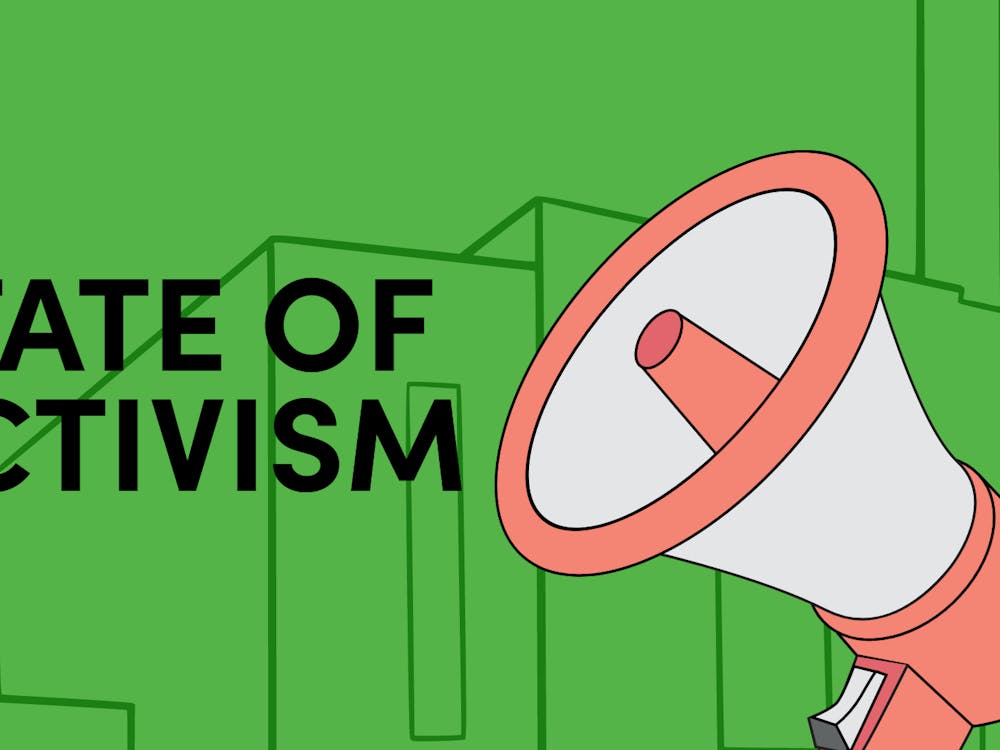Last month, the feminist website Babe ran an article recounting the traumatizing sexual experience that a 23-year-old photographer, writing under the pseudonym “Grace,” had with comedian Aziz Ansari. While this comes during a time when sexual assault awareness is at a record high with the rise of #MeToo, many are quick to dismiss the victim’s allegations as an unviable part of the movement.
New York Times columnist Bari Weiss refered to the incident as “arguably the worst thing that has happened to the #MeToo movement since it began in October.” She argues that Grace’s experience is merely one of bad sex, not sexual assault. Weiss trivializes Grace’s experience by claiming that it was just bad sex, that “it sucks,” and that Grace should move on. The prevalence of what some refer to as “just bad sex” is emblematic of our society’s toxic attitudes towards sex, to which we are all guilty of contributing.
Rather than slotting “bad sex” as unavoidable, we need to take it as a symbol of how society has stigmatized female sexuality. Blanket advice, telling women to better use verbal cues and just say stop, is not the solution. It unfairly places all the blame on the victim. If we want to address sexual assault, we need to start by examining our society’s toxic sexual culture and the role we play in upholding it.
When reading Grace’s story, our gut reaction is to question her actions, to ask why she didn’t just say no and walk away. In Weiss’s words, “if he pressures you to do something you don’t want to do, use a four-letter word, stand up on your two legs and walk out his door.” While this suggestion certainly has a naïve appeal, it brings an unwarranted patronizing shame onto the victim.
Saying no is not easy, certainly not as easy as Weiss has made it out to be.
One salient reason is the omnipresent threat of violent retaliation against women. Bonnie Currie was pushed onto subway tracks after shoving away a man groping her. Andrea Farrington was shot three times in the back by a man she had turned down. In 2014, Elliot Rodger went on a shooting rampage in the UC Santa Barbara partially motivated by his desire to punish “hot girls” who had denied him.
From a young age, women are socialized to be nice, to please, to not fight back. There is an obvious stigma surrounding those who resist these conceptions, drawing up gendered insults like “such a nasty woman.” When we reach this gray area — this feeling of uncertainty in an escalating sexual encounter — it becomes easier, almost expected, to acquiesce. Instead of potentially hurting the other person’s feelings, we learn to play along and face our regrets later.
So, when our reaction is to blame Grace for not simply telling Ansari to “stop,” we unfairly put the burden of responsibility on her without considering the extenuating societal circumstances. Rather than place the fault onto victims, we have to focus on examining the normalization of “bad sex.” Discounting its legitimacy as a serious issue only feeds into the problem.
Stories of uncomfortable sexual encounters are relatable for many women. We were reminded of this fact when the short story “Cat Person” by Kristen Roupenian went viral. “Cat Person” details the awkward sexual encounter that the protagonist Margot has during a date. Even though she does not want to, Margot feels the need to have sex with her date because the situation had progressed too far for her to say no.
Female readers find themselves mirrored in Margot and in Grace. There is a vast, confusing area between consent and nonconsent. For the many women who have experienced it, the encounter ends with a feeling of indescribable guilt that is hard to justify. Dismissing these as expected and merely “bad sex” reaffirms the association between discomfort and sex. We are taught to think that since it does not qualify as sexual assault, it must be considered acceptable.
So shame becomes indelibly linked to sex. Women learn to expect the niggling sense of uncertainty and deal with the bad sex that inevitably comes in the wake of being sexually active. In doing so, we are contributing to and upholding the same toxic culture that hurt us to begin with.
A good place to begin is within our sexual education system. Unlearning our attitudes toward sex will be difficult, but it is a necessary first step. The current approach towards sexual education emphasizes rote mechanics and scientific terms. It deals with sexuality in conceptual terms only, not even touching on the idea of sex as a pleasurable activity for both parties. Learning about STIs and contraception is clearly important, but it is not the only component needed to have a healthy sex life.

A greater educational emphasis on pleasure-focused sexual education would help erase the ingrained belief that, as women, we should expect to feel uncomfortable during sex. Setting “good sex,” or sex that is consensual and pleasurable, as the norm creates a better culture which places equal value on the experiences of both partners.
While education is not the panacea for our problems, it is key in starting to unpack this negative association we have between sex and discomfort. We can and should work towards a sexual culture in which “stop” is an easy four-letter word to say, and bad sex is no longer accepted as a norm.
Dora Zhao is a first-year student from Newtown, Pa. She can be reached at dorothyzhao@princeton.edu.








